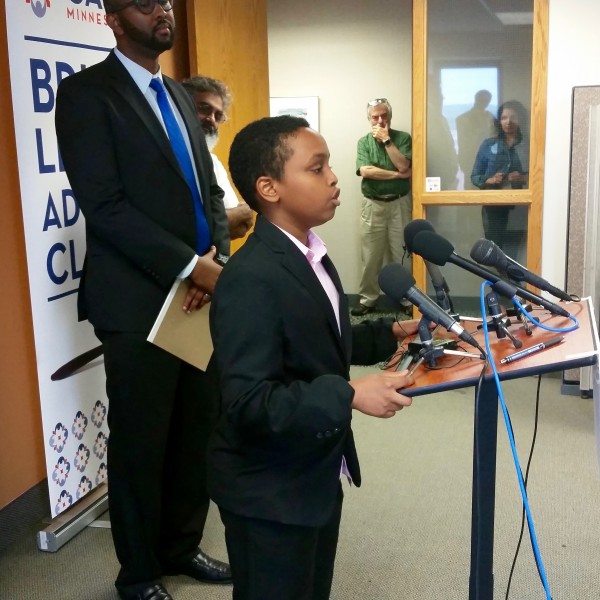
Coincidentally, Republican presidential nominee Donald Trump came to Minneapolis MN on the same day I made my first visit to the city. This turned a day that I had planned to spend sightseeing into a day of traveling to three different anti-Trump events.
“Trump’s rhetoric is creating an unsafe environment for the Muslim community, for the Somali-American community, and we have seen an increase in Islamaphobia and anti-Muslim efforts across the state of Minnesota,” said Jaylani Hussein, executive director of the Council of American-Islamic Relations- Minnesota (CAIR-MN), “We have seen, just a few weeks ago, an incident involving five young Muslim men who were shot… we believe that incident is a hate crime.”
Hussein believes that Trump’s extremist rhetoric is creating a hostile, unsafe environment for Muslim Americans and immigrants, and the effects are being felt by the most vulnerable.
Hussein introduced 13-year old Yusuf Dayur who has been experiencing bullying in his school because he is a Muslim. Hussein suggested that Dayur might one day be president. Though Dayur’s school is very proactive in providing Dayur time and space in which to pray, some of his fellow students do not trust him because he is a Muslim. Dayur bravely fought back tears as he described the difficulties he faces.
Jaylani Hussein’s full comments:
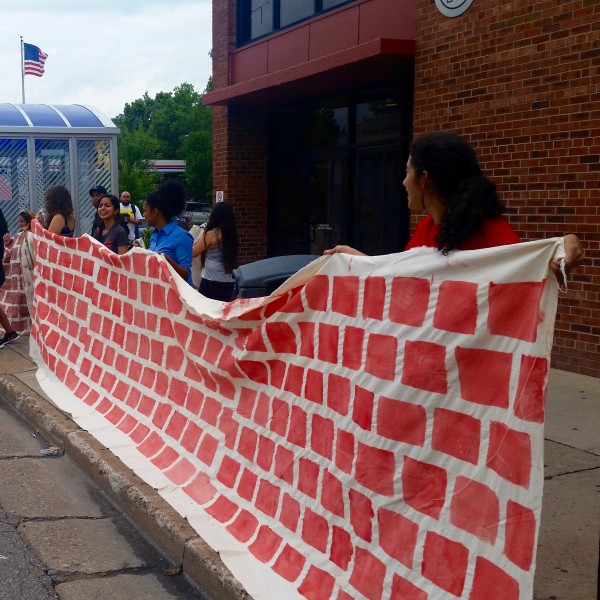 After the press conference I headed across town to the Minnesota State Republican Offices where Cosecha Minnesota was holding a “Wall Off Trump” event. Cosecha is “a nonviolent decentralized movement that is focused on activating our immigrant community and the public to guarantee permanent and humane protection for immigrants in this country.”
After the press conference I headed across town to the Minnesota State Republican Offices where Cosecha Minnesota was holding a “Wall Off Trump” event. Cosecha is “a nonviolent decentralized movement that is focused on activating our immigrant community and the public to guarantee permanent and humane protection for immigrants in this country.”
Estaphania and another woman explained that their protest, in which they painted a wall, like the one Trump is promising on the Texas-Mexico border, is meant to draw attention to Trump’s extremist rhetoric that threatens the health and safety of immigrant Americans.
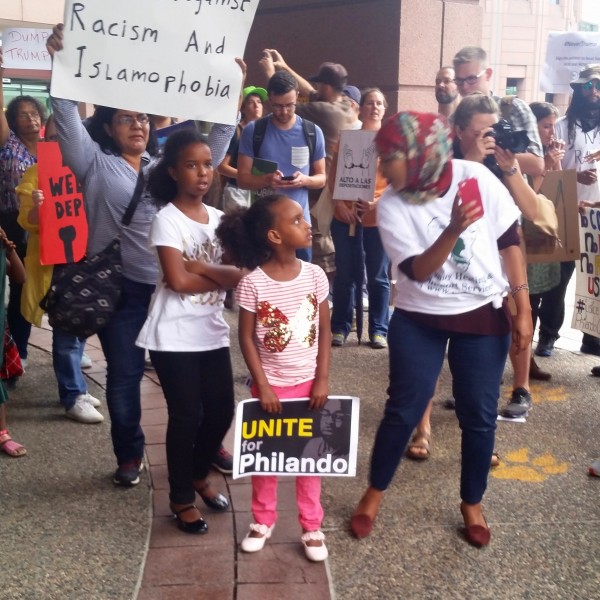 My last stop was at the Minneapolis Convention Center, where people representing virtually everyone Trump has ever publicly maligned, including immigrants, black Americans, members of the LGBTQ community, women, Muslims, indigenous Americans and more, gathered together to denounce Trump ahead of his visit to a large donor rally.
My last stop was at the Minneapolis Convention Center, where people representing virtually everyone Trump has ever publicly maligned, including immigrants, black Americans, members of the LGBTQ community, women, Muslims, indigenous Americans and more, gathered together to denounce Trump ahead of his visit to a large donor rally.
This protest was organized by MIRAc, the Minnesota Immigrant Rights Action Committee, a group that, “fights for legalization for all, an end to immigration raids & deportations, an end to all anti-immigrant laws, and full equality in all areas of life.”
 Trump did not make a public appearance in Minnesota, or even speak to the press. He spoke to donors only at the Convention Center. But his very presence in the city was enough to galvanize this group to come out to speak, sing, dance and chant their opposition to Trump being president.
Trump did not make a public appearance in Minnesota, or even speak to the press. He spoke to donors only at the Convention Center. But his very presence in the city was enough to galvanize this group to come out to speak, sing, dance and chant their opposition to Trump being president.
According to the Minnesota Star Tribune, after this event, as Trump donors left the convention center, they were confronted by angry demonstrators. “The demonstrators who harassed donors were not present earlier on, when the protest was peaceful. Many in the later group hid their faces behind scarves,” writes reporter Patrick Condon, “Minneapolis police spokeswoman Sgt. Catherine Michal said there were no arrests and no reported injuries. There was, however, minor damage, including graffiti on the walls of the Convention Center, and officers had to escort Trump supporters in and out of the lobby because they were being harshly confronted, Michal said.”
Below are the rest of the pictures and video from the three events.

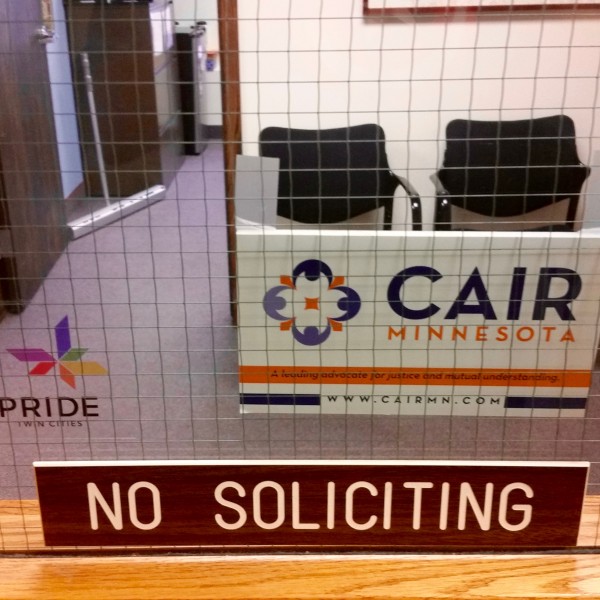



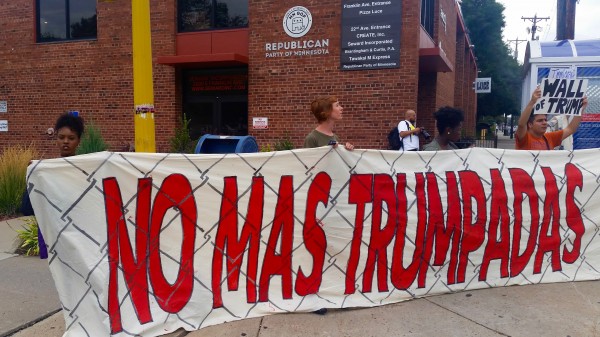


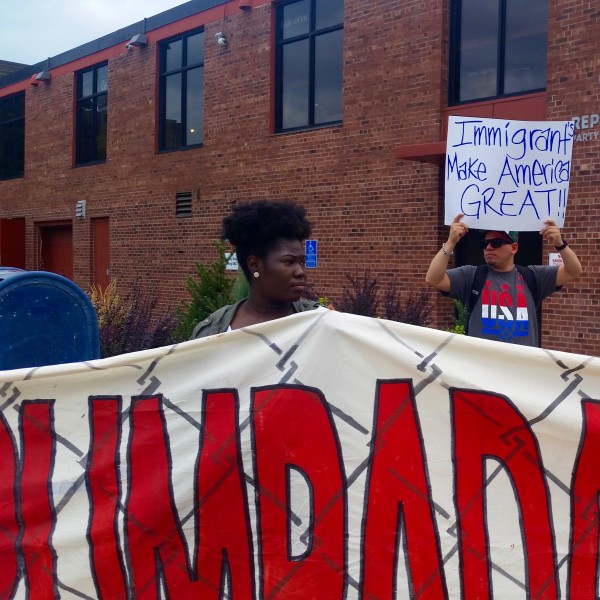
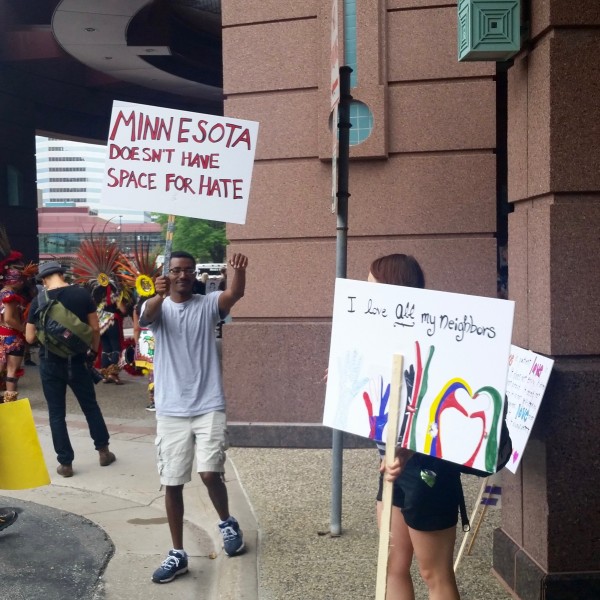




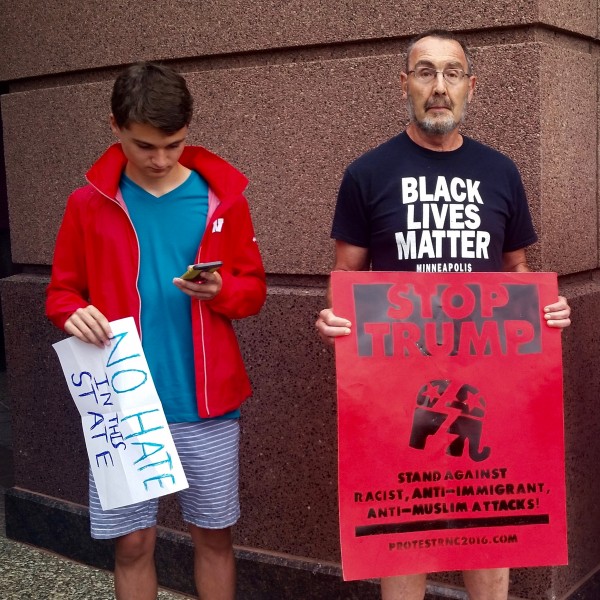


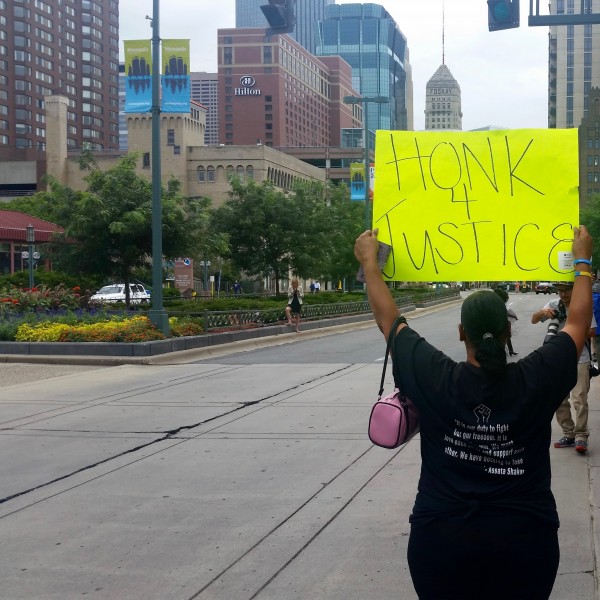
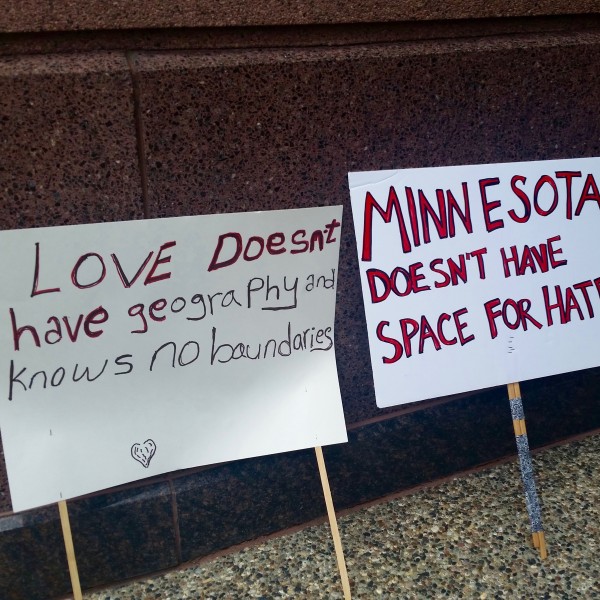
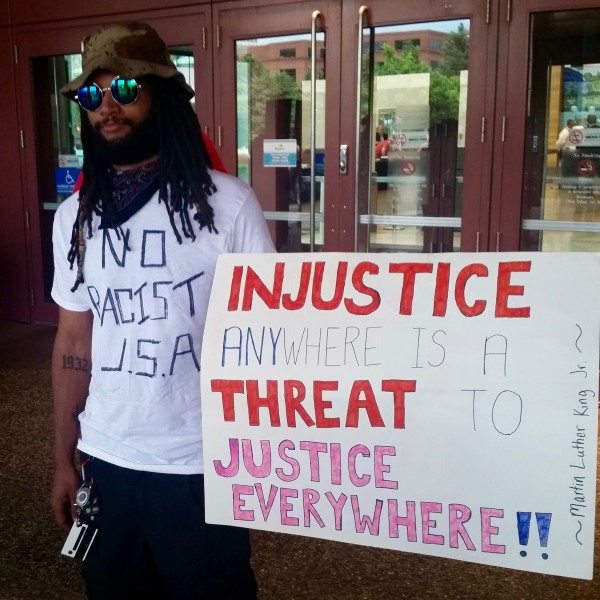
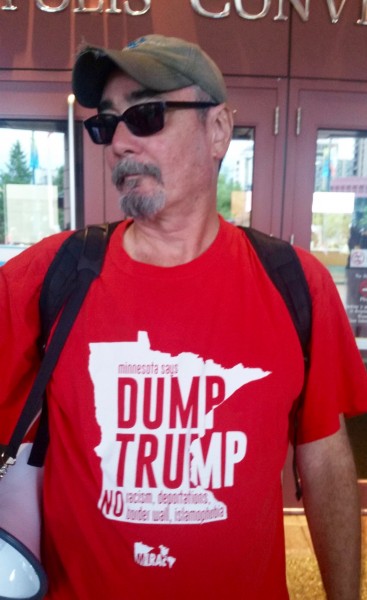
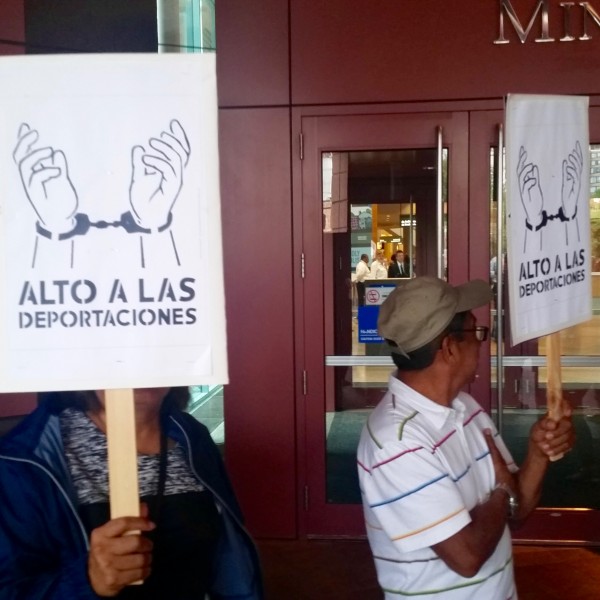

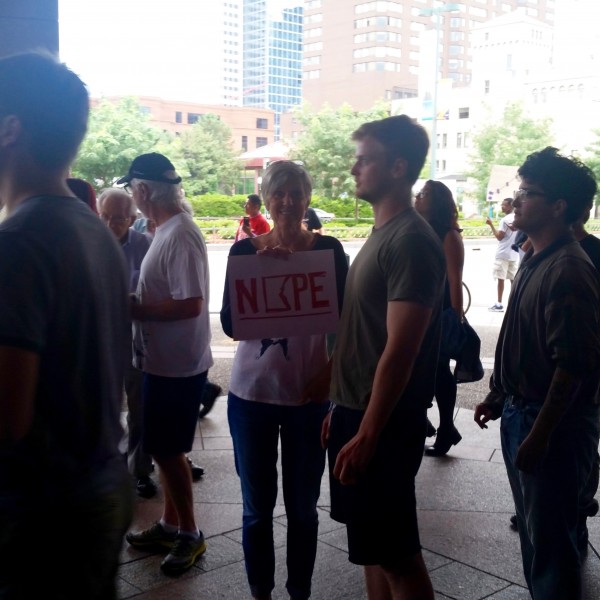
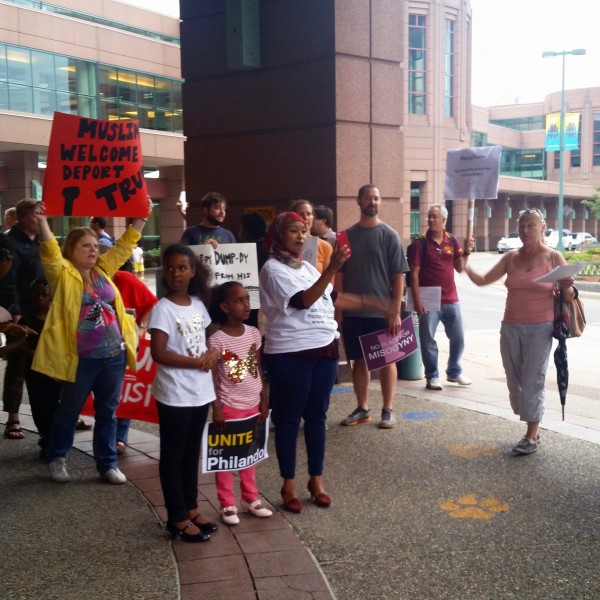
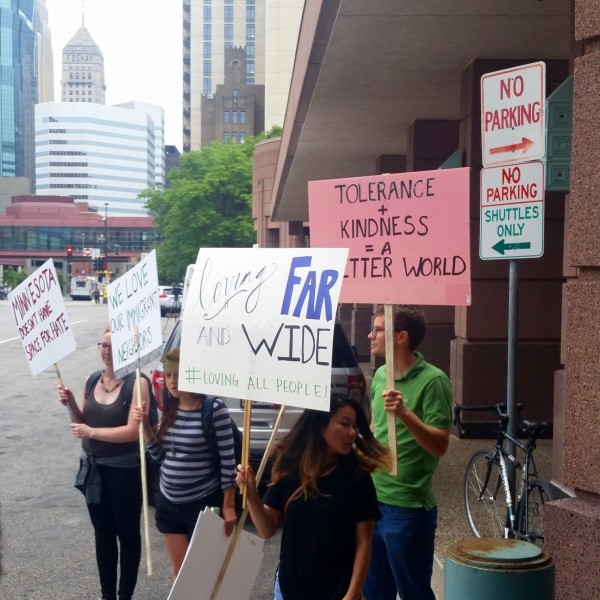


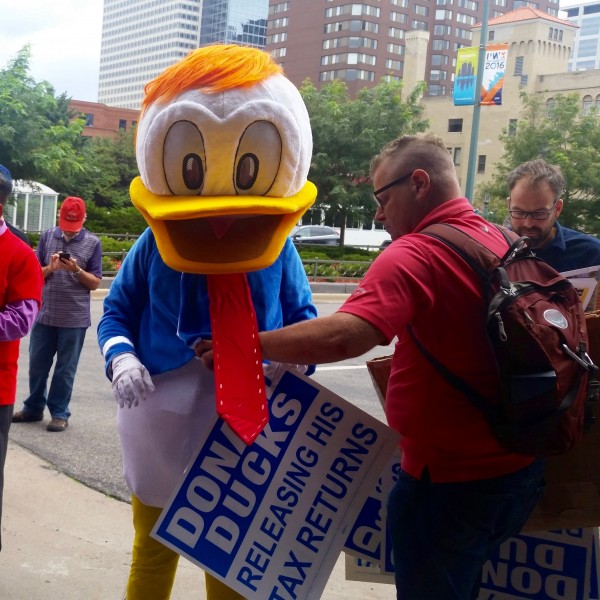
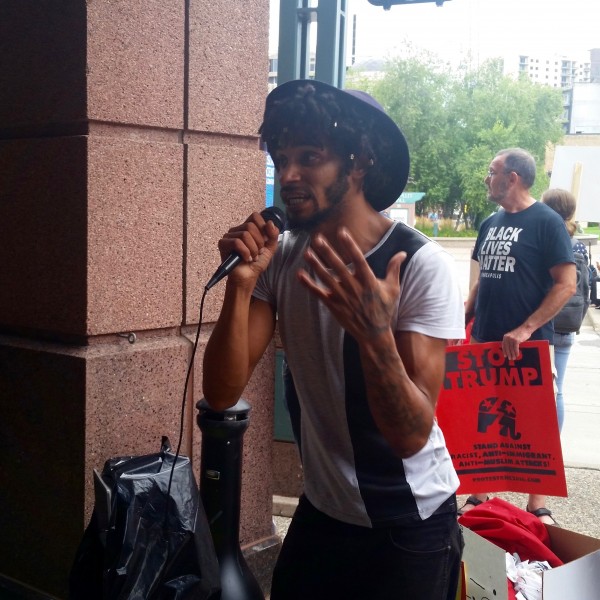
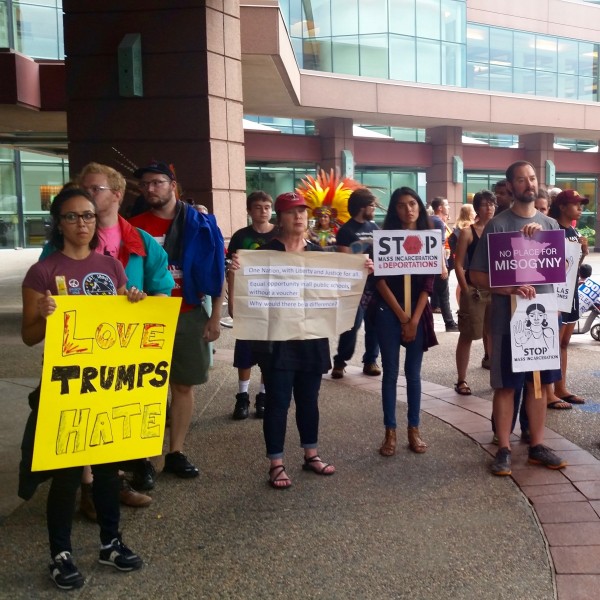
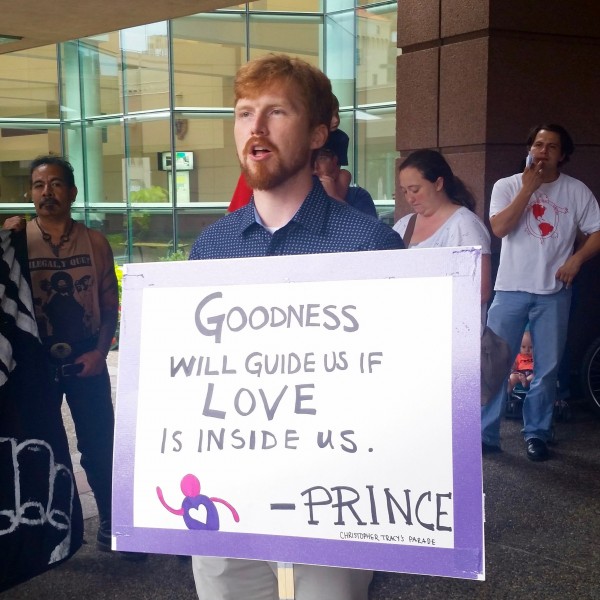
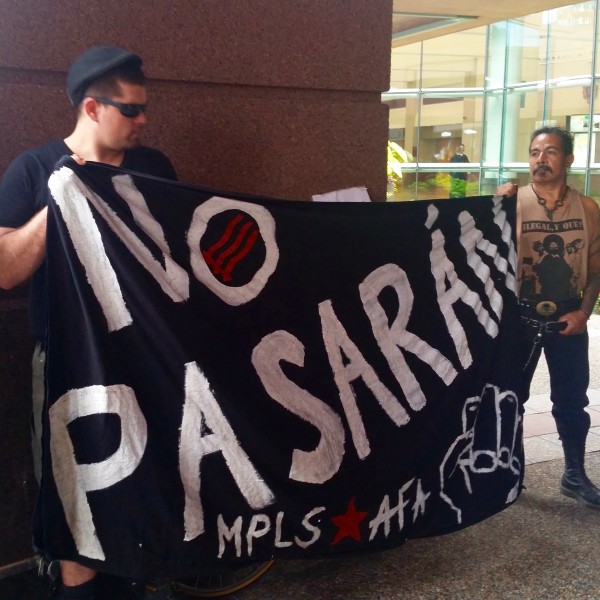
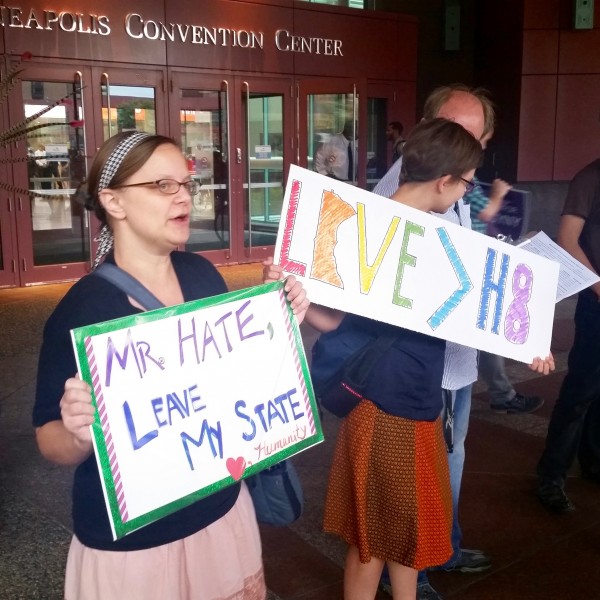


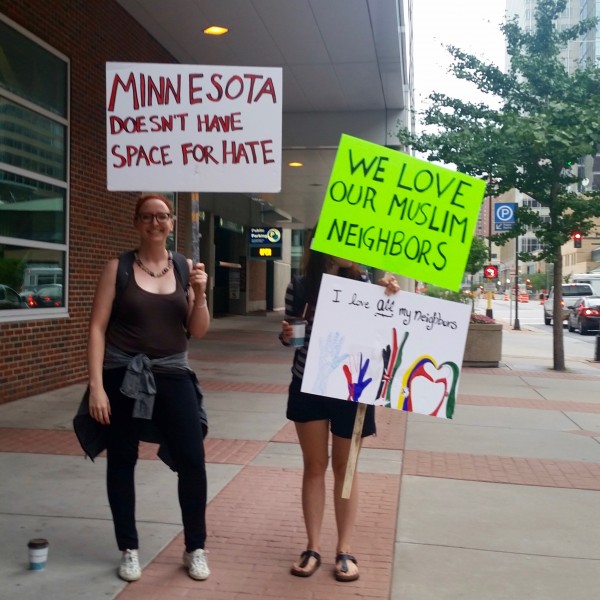
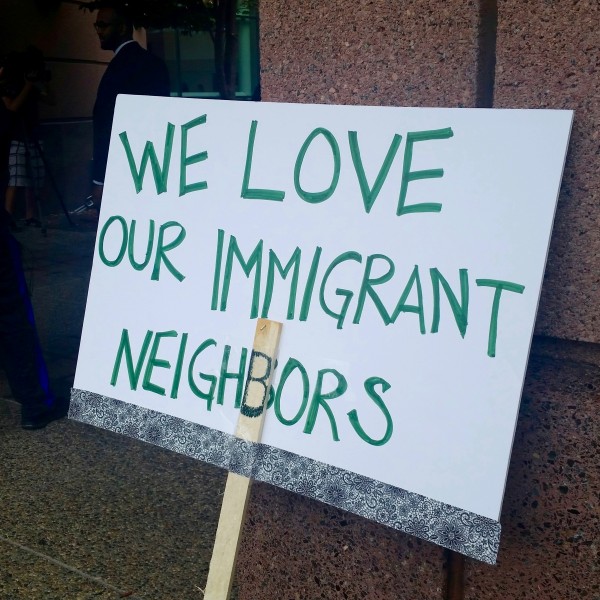

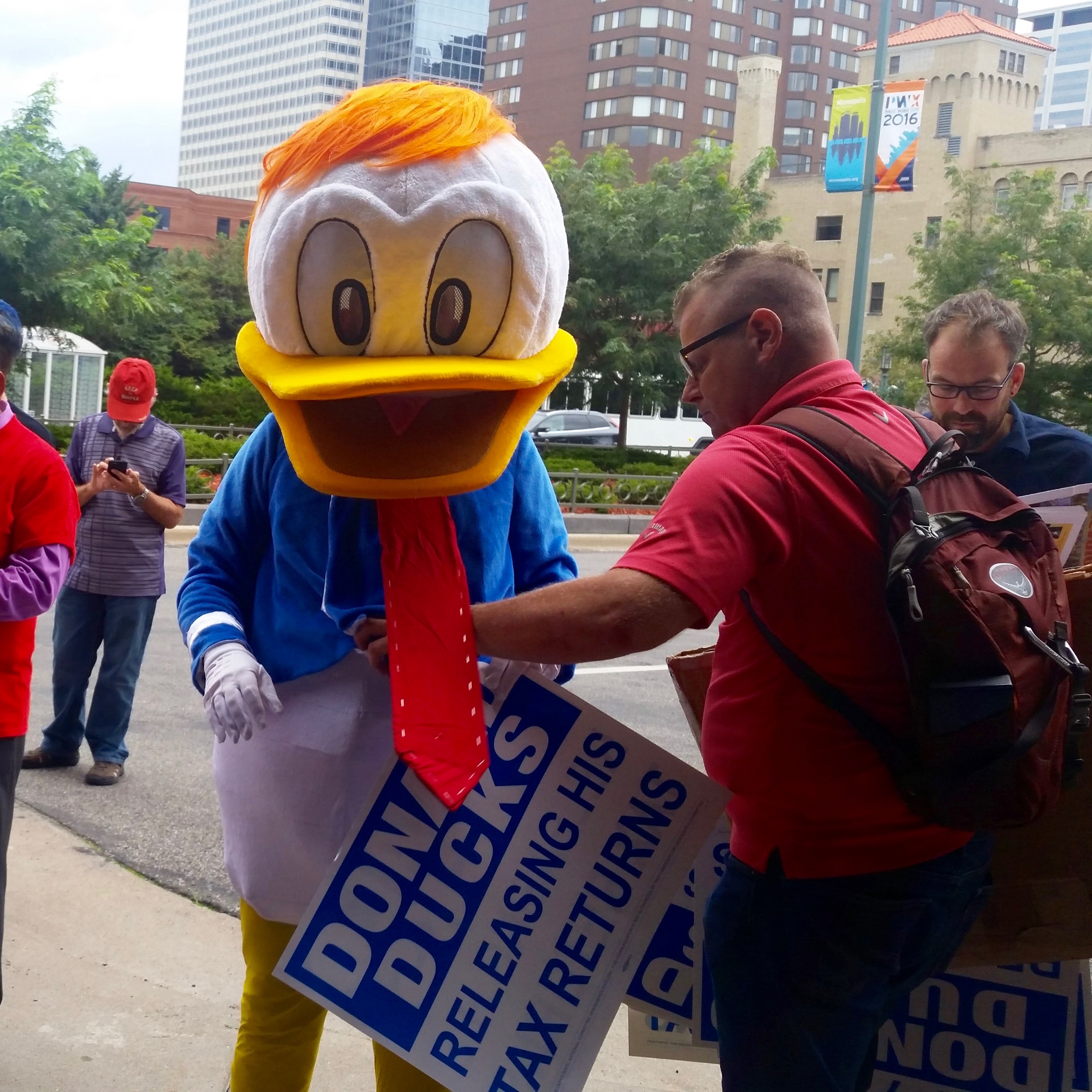


 The Rhode Island Sierra Club strongly praises the bold climate leadership of the nine Providence legislators who publicly expressed their opposition to National Grid’s proposal for a $180 million fracked gas liquefaction facility at Fields Point in the Port of Providence.
The Rhode Island Sierra Club strongly praises the bold climate leadership of the nine Providence legislators who publicly expressed their opposition to National Grid’s proposal for a $180 million fracked gas liquefaction facility at Fields Point in the Port of Providence. Unfortunately, the same can not be said of Providence Mayor Jorge Elorza. Rather than making any effort to live up to his rhetoric on climate change, Mayor Elorza has chosen to partner with National Grid and help them advance their proposal with tacit support and active negotiations for a Tax Stabilization Agreement to smooth out the utility’s tax payments over time.
Unfortunately, the same can not be said of Providence Mayor Jorge Elorza. Rather than making any effort to live up to his rhetoric on climate change, Mayor Elorza has chosen to partner with National Grid and help them advance their proposal with tacit support and active negotiations for a Tax Stabilization Agreement to smooth out the utility’s tax payments over time.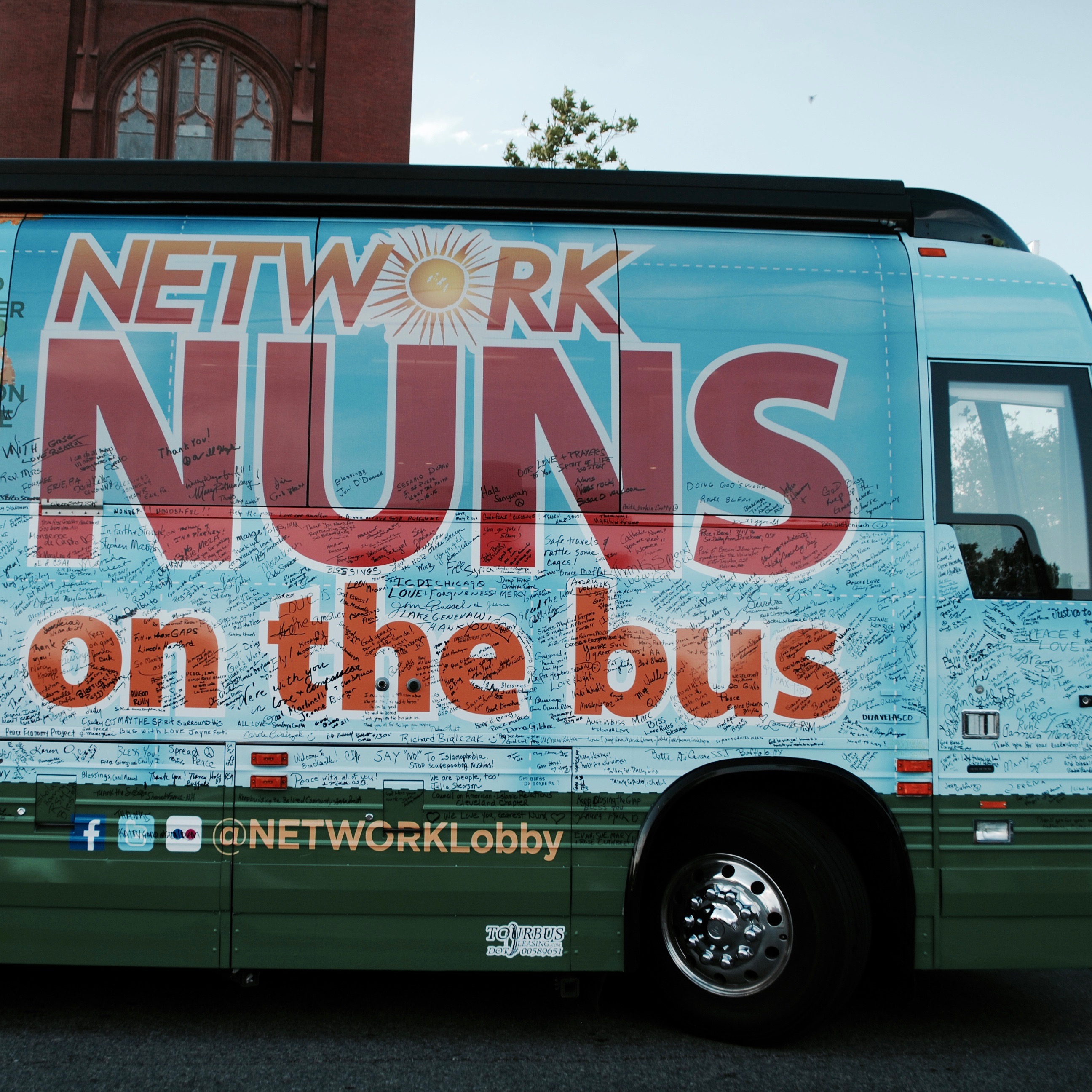
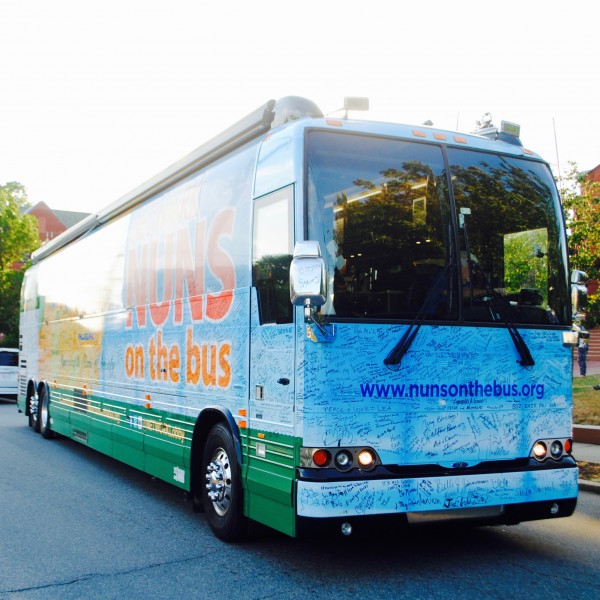 The
The 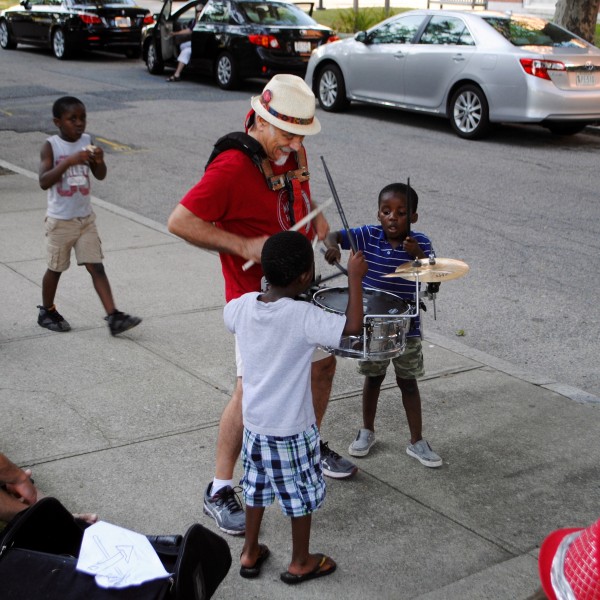


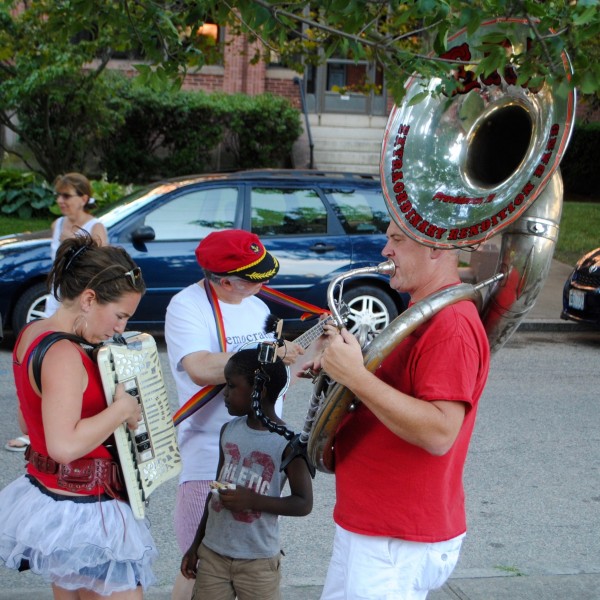

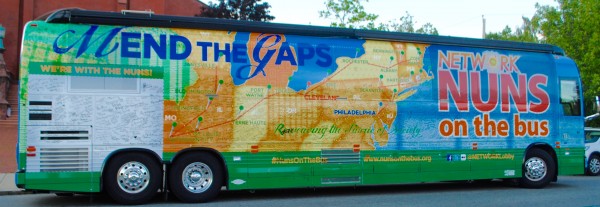
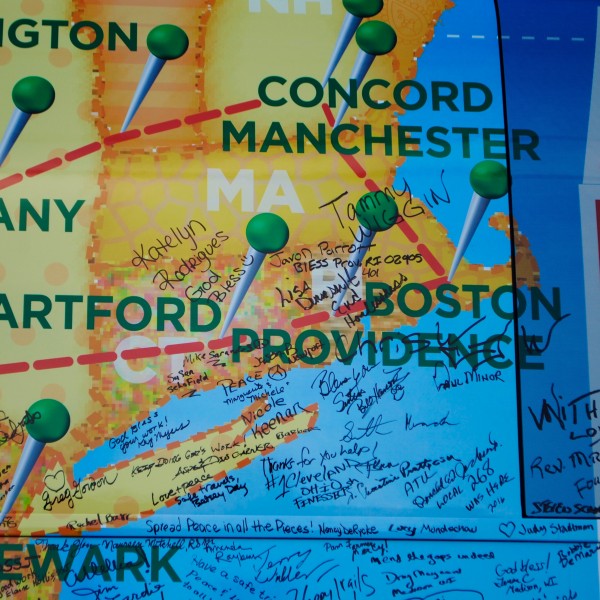
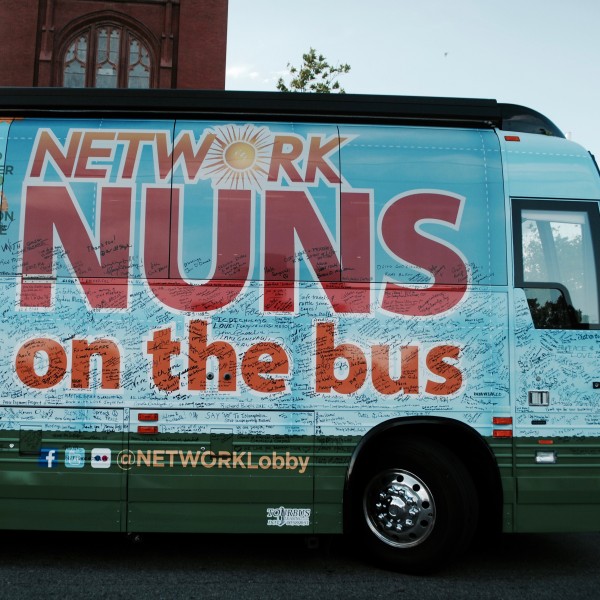
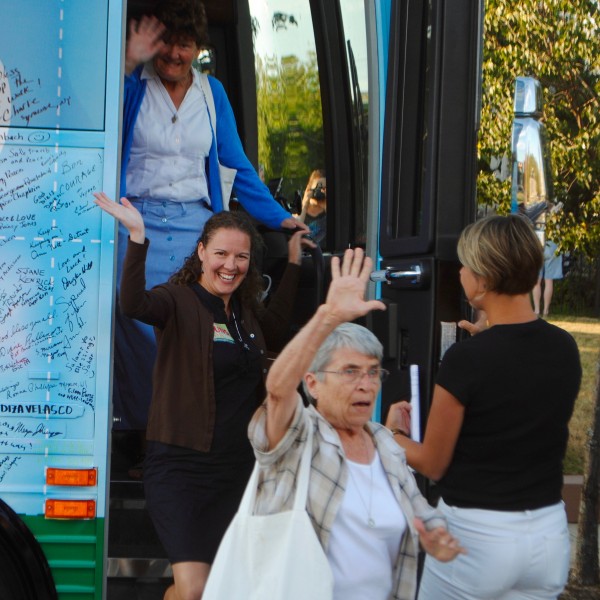
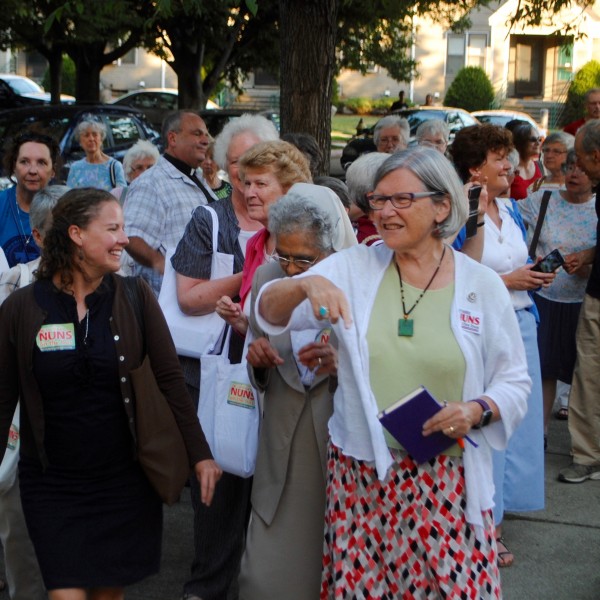
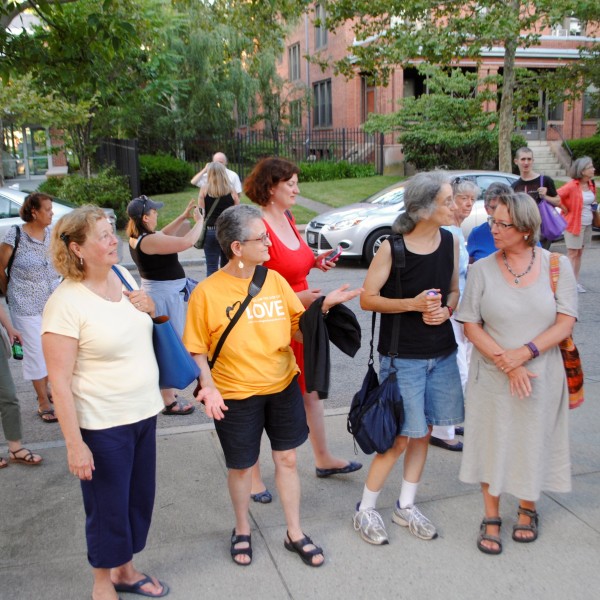
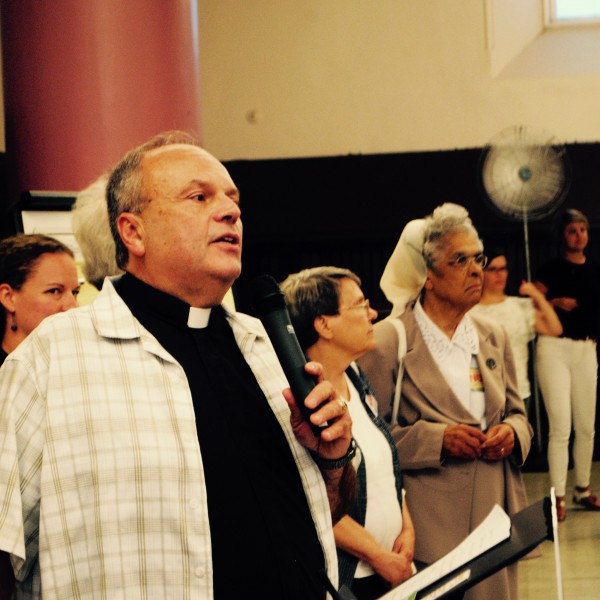
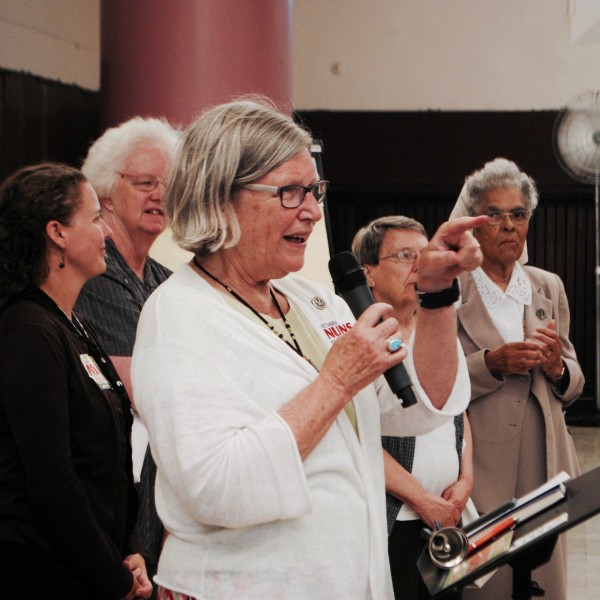
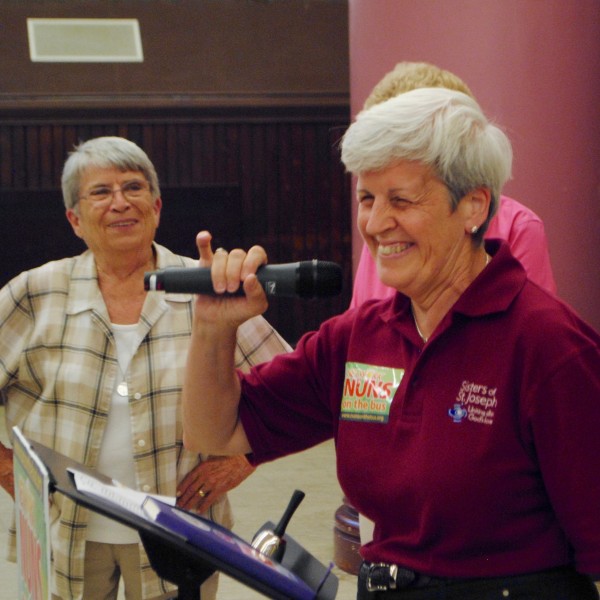
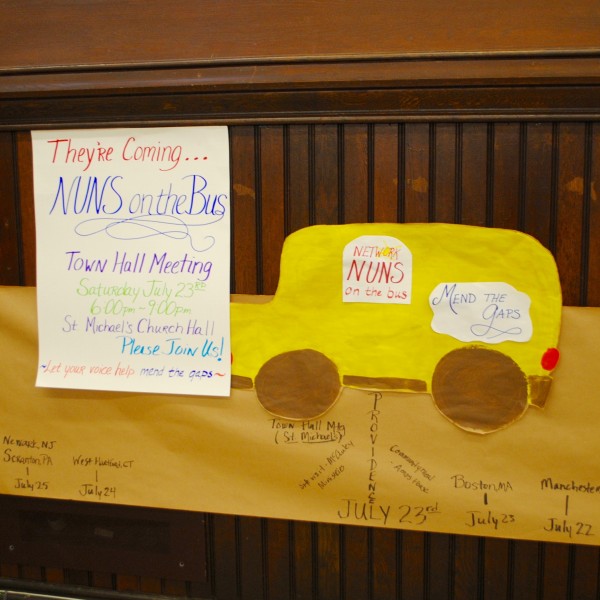
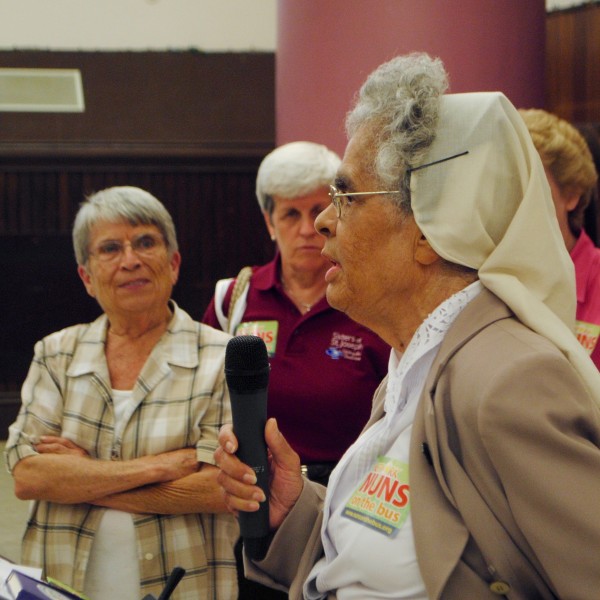
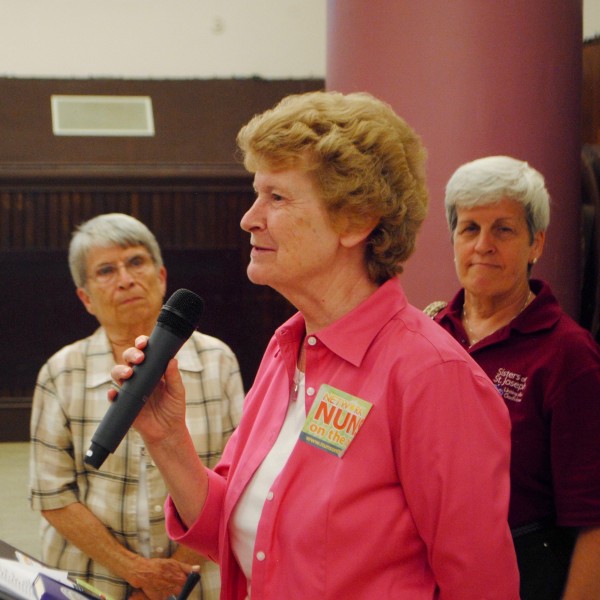
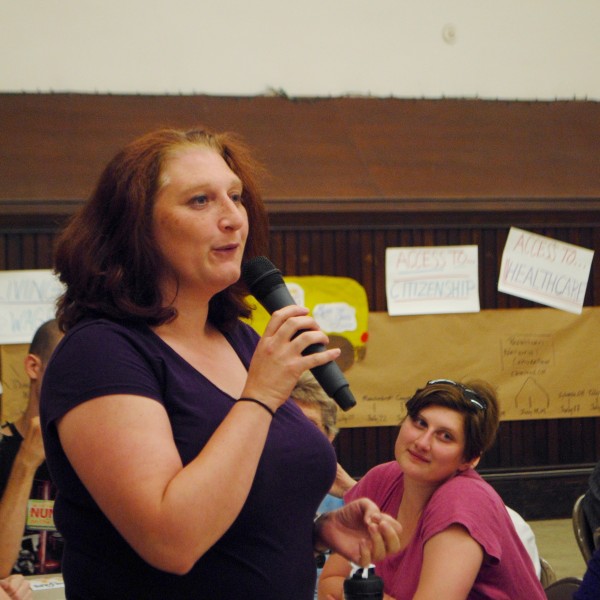
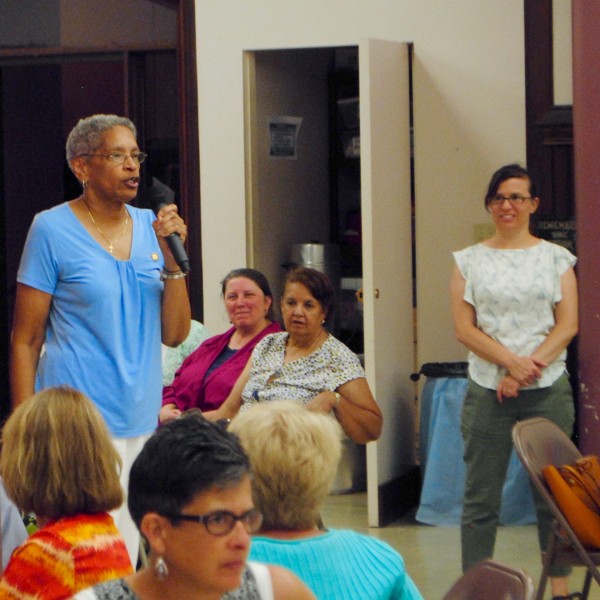
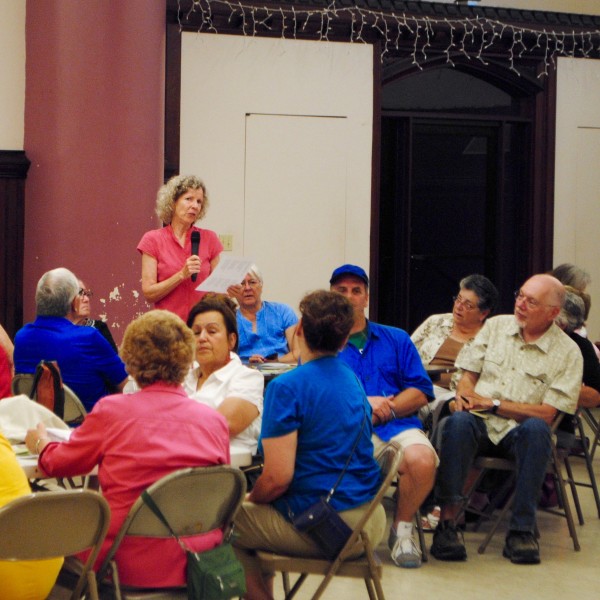


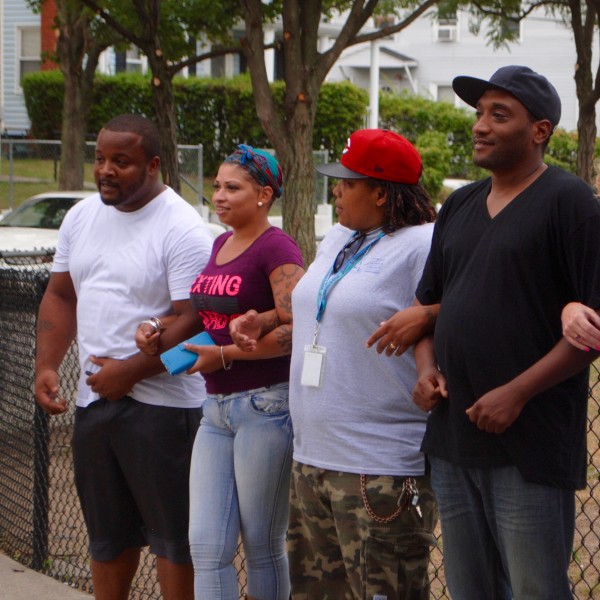 “There have been 6 or 7 shootings in and around the Pence Park area in Pawtucket,” said Melissa Darosa, a streetworker for the
“There have been 6 or 7 shootings in and around the Pence Park area in Pawtucket,” said Melissa Darosa, a streetworker for the 



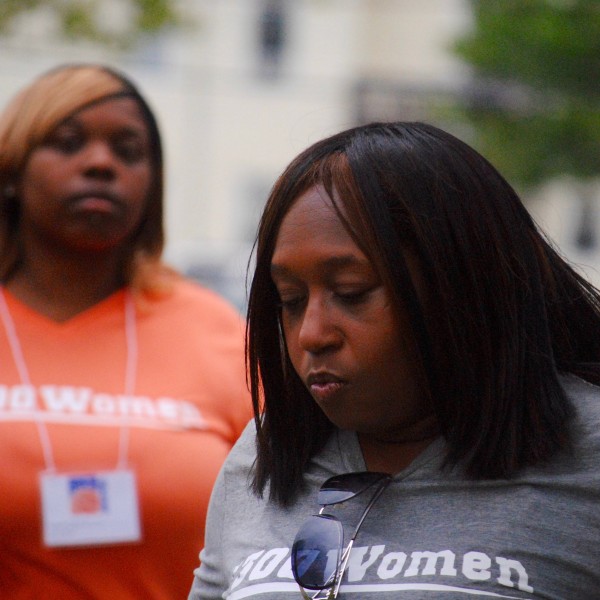


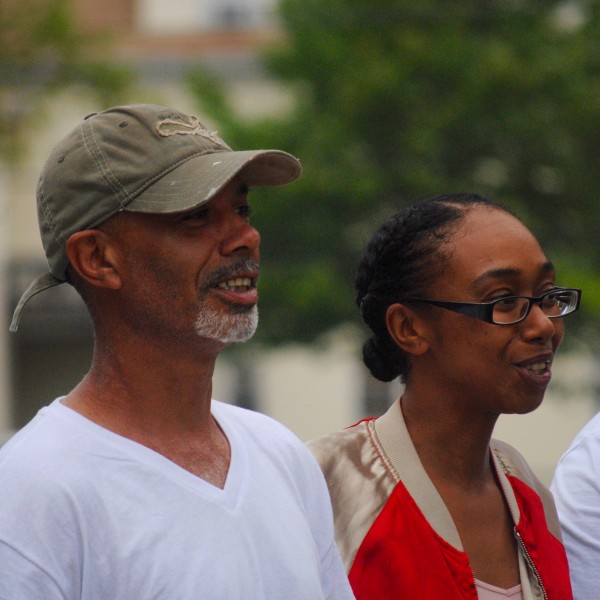
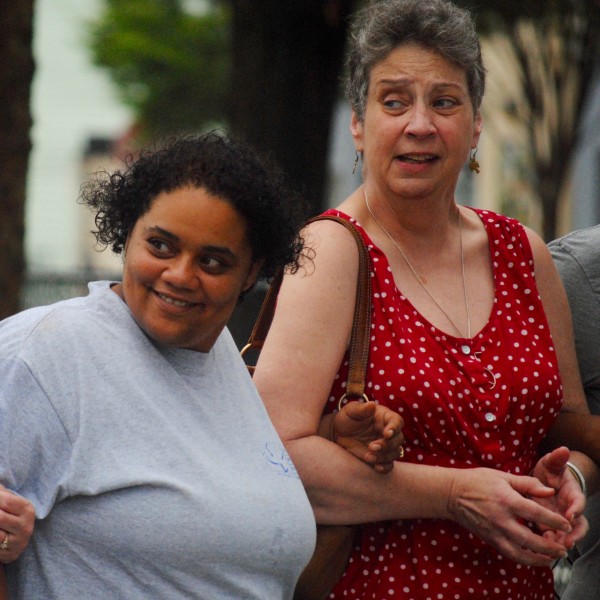

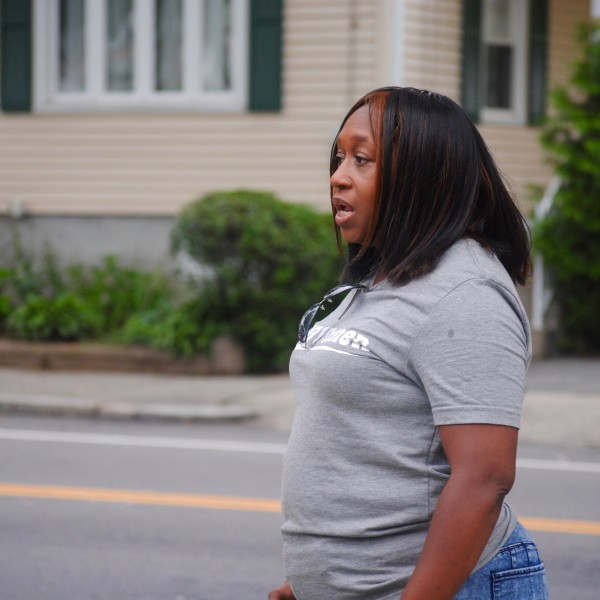
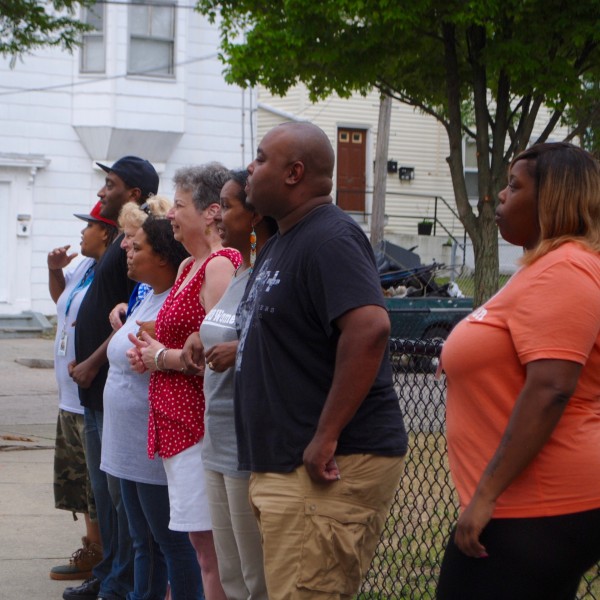
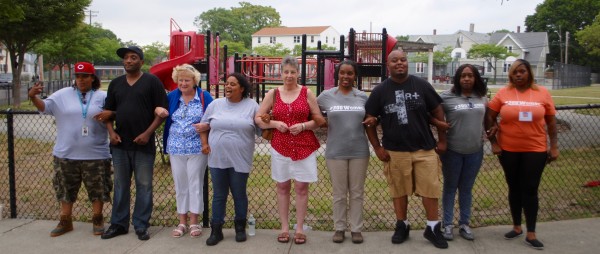
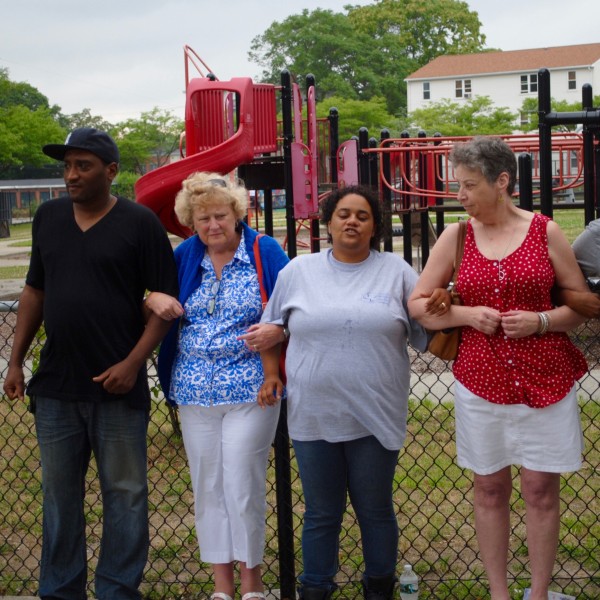
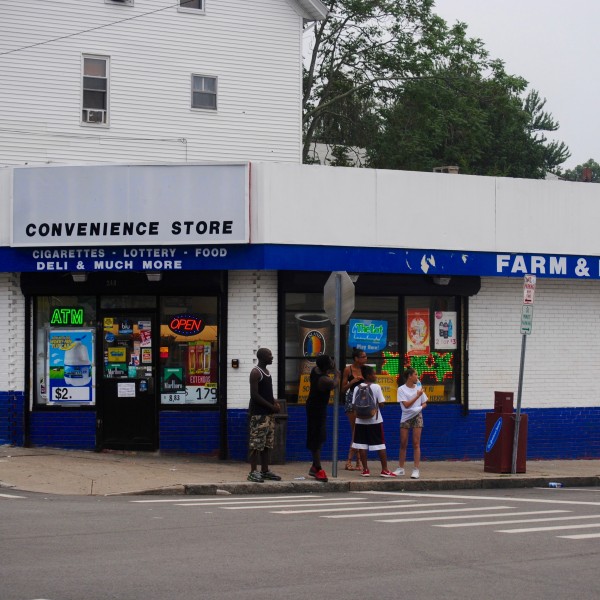
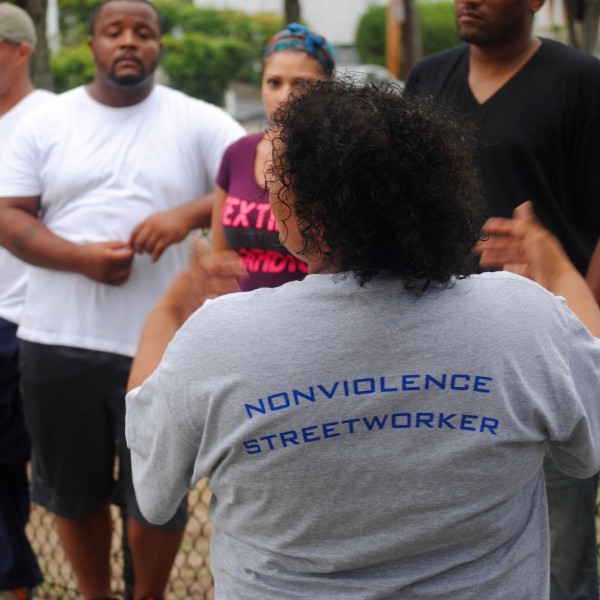
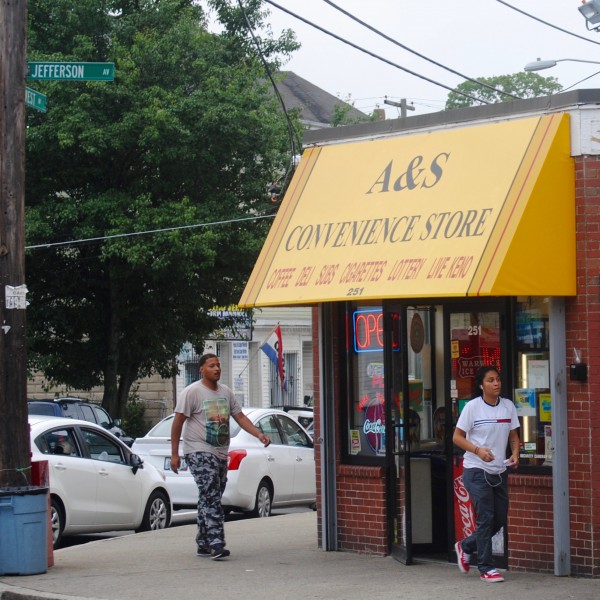

 From the headlines, you would think that CNBC is the gold standard economic authority. After the cable news network released its 10th annual “
From the headlines, you would think that CNBC is the gold standard economic authority. After the cable news network released its 10th annual “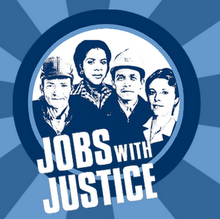

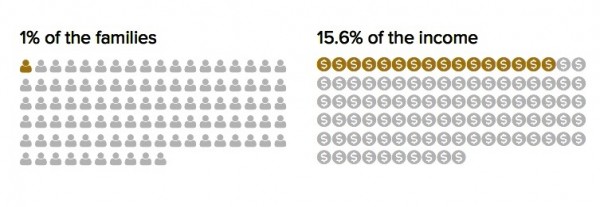 “Rising inequality is not a new phenomenon, and it’s not confined to large urban areas or financial centers,” said Price. “It’s a persistent problem throughout the country—in big cities and small towns, in all 50 states. In the face of this national problem, we need national policy solutions to jump start wage growth for the vast majority.”
“Rising inequality is not a new phenomenon, and it’s not confined to large urban areas or financial centers,” said Price. “It’s a persistent problem throughout the country—in big cities and small towns, in all 50 states. In the face of this national problem, we need national policy solutions to jump start wage growth for the vast majority.”
 Speaker Nicholas Mattiello said that though he “is very supportive of raising the minimum wage,” and that Rhode Island “needs to be competitive” with our neighboring states, he has, “heard from the business community” that they need time to absorb the current wage before increasing it again. Mattiello said that the minimum wage has gone up four years in a row and, “I’ve indicated that we’re going to look at it next year.”
Speaker Nicholas Mattiello said that though he “is very supportive of raising the minimum wage,” and that Rhode Island “needs to be competitive” with our neighboring states, he has, “heard from the business community” that they need time to absorb the current wage before increasing it again. Mattiello said that the minimum wage has gone up four years in a row and, “I’ve indicated that we’re going to look at it next year.”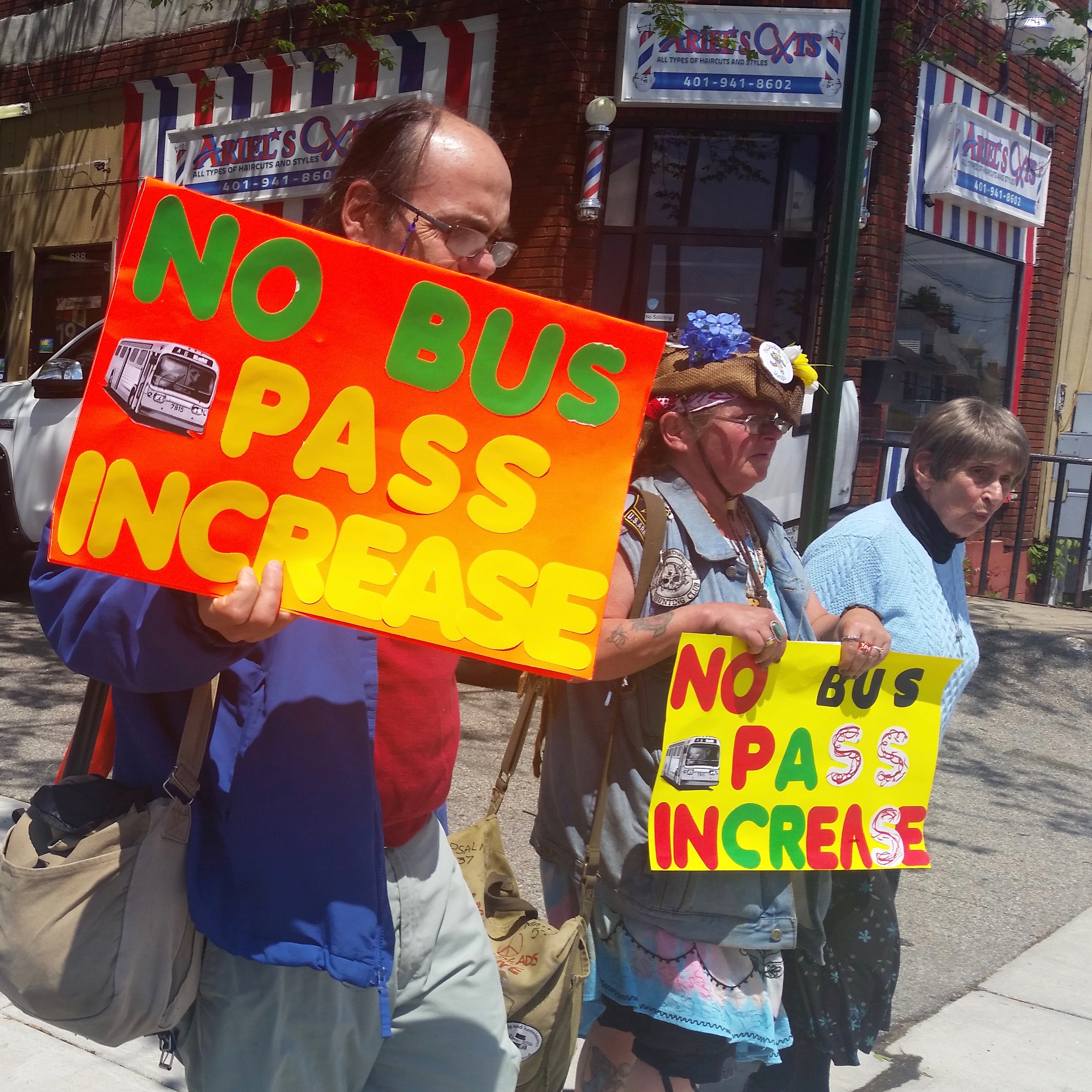
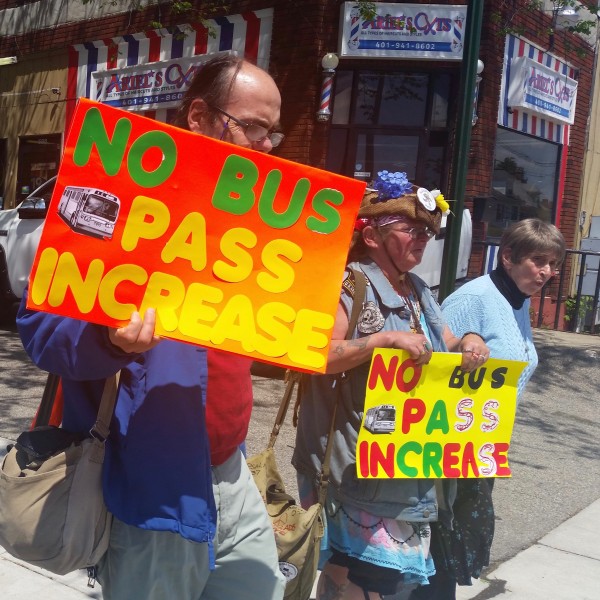 Some of Rhode Island’s most vulnerable people were dealt a serious blow in the recently released House budget. Disabled and senior Rhode Islanders are going to be hit with a bus fare hike now expected to start in January.
Some of Rhode Island’s most vulnerable people were dealt a serious blow in the recently released House budget. Disabled and senior Rhode Islanders are going to be hit with a bus fare hike now expected to start in January.
 Past recipients include:
Past recipients include:

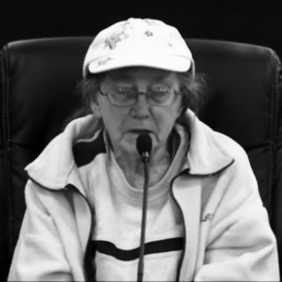

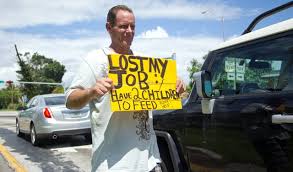


 On Friday
On Friday The state increased the estate tax threshold in 2014 effective January 2015, essentially increasing estates exempt from paying the tax from $1 million to $1.5 million and reducing the tax on higher income estates. The estimated revenue from the estate tax in 2014 was $43.6 million, dropping to $34.2 million in 2015, a 20% loss of revenue after the change.
The state increased the estate tax threshold in 2014 effective January 2015, essentially increasing estates exempt from paying the tax from $1 million to $1.5 million and reducing the tax on higher income estates. The estimated revenue from the estate tax in 2014 was $43.6 million, dropping to $34.2 million in 2015, a 20% loss of revenue after the change.
 Four people have been arrested at National Grid‘s North American headquarter building in Waltham, MA. National Grid, one of the Northeast’s largest utility companies, has a track record of injustice.
Four people have been arrested at National Grid‘s North American headquarter building in Waltham, MA. National Grid, one of the Northeast’s largest utility companies, has a track record of injustice. 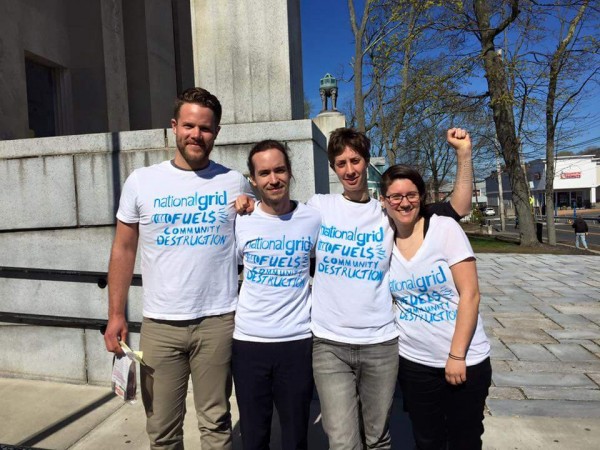
 “Utility shut-offs disproportionately impact the most vulnerable members of society; elders and those with disabilities, low-income communities, and people of color,” said protester Carly Toomey. “Rate hikes and shut-offs fuel displacement in areas already reeling from gentrification.”
“Utility shut-offs disproportionately impact the most vulnerable members of society; elders and those with disabilities, low-income communities, and people of color,” said protester Carly Toomey. “Rate hikes and shut-offs fuel displacement in areas already reeling from gentrification.”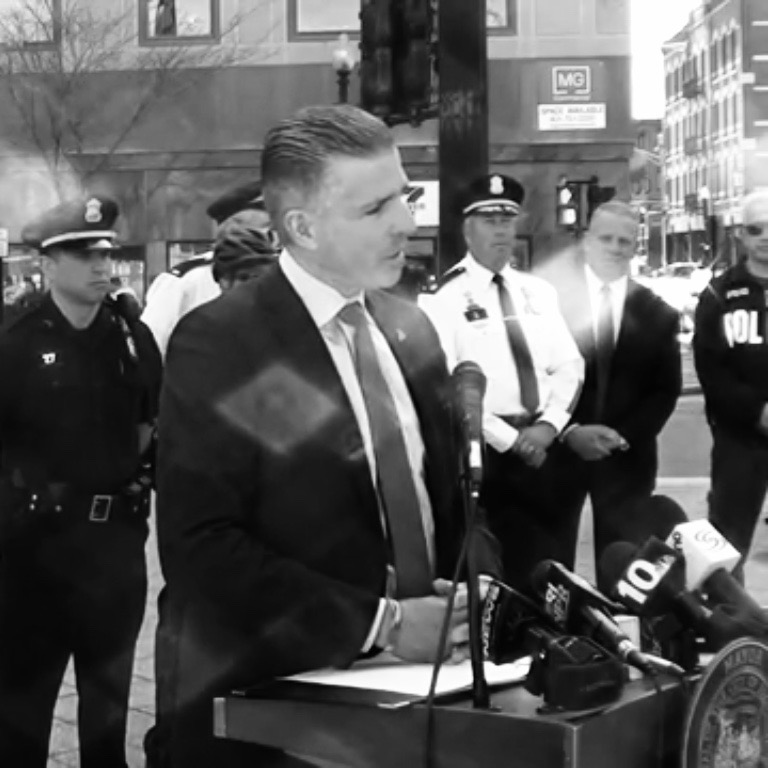
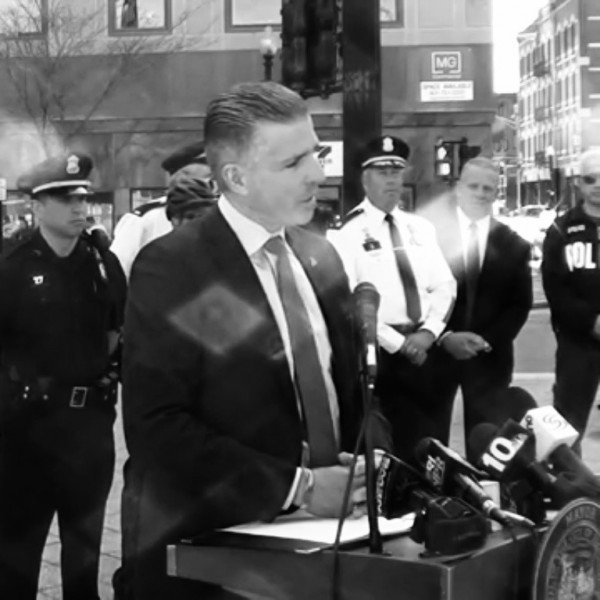
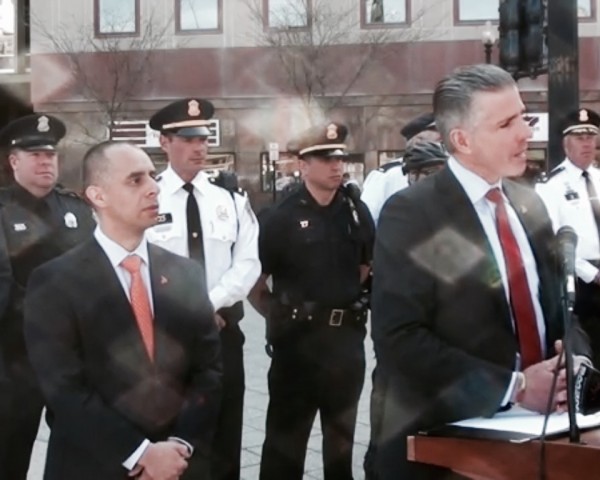
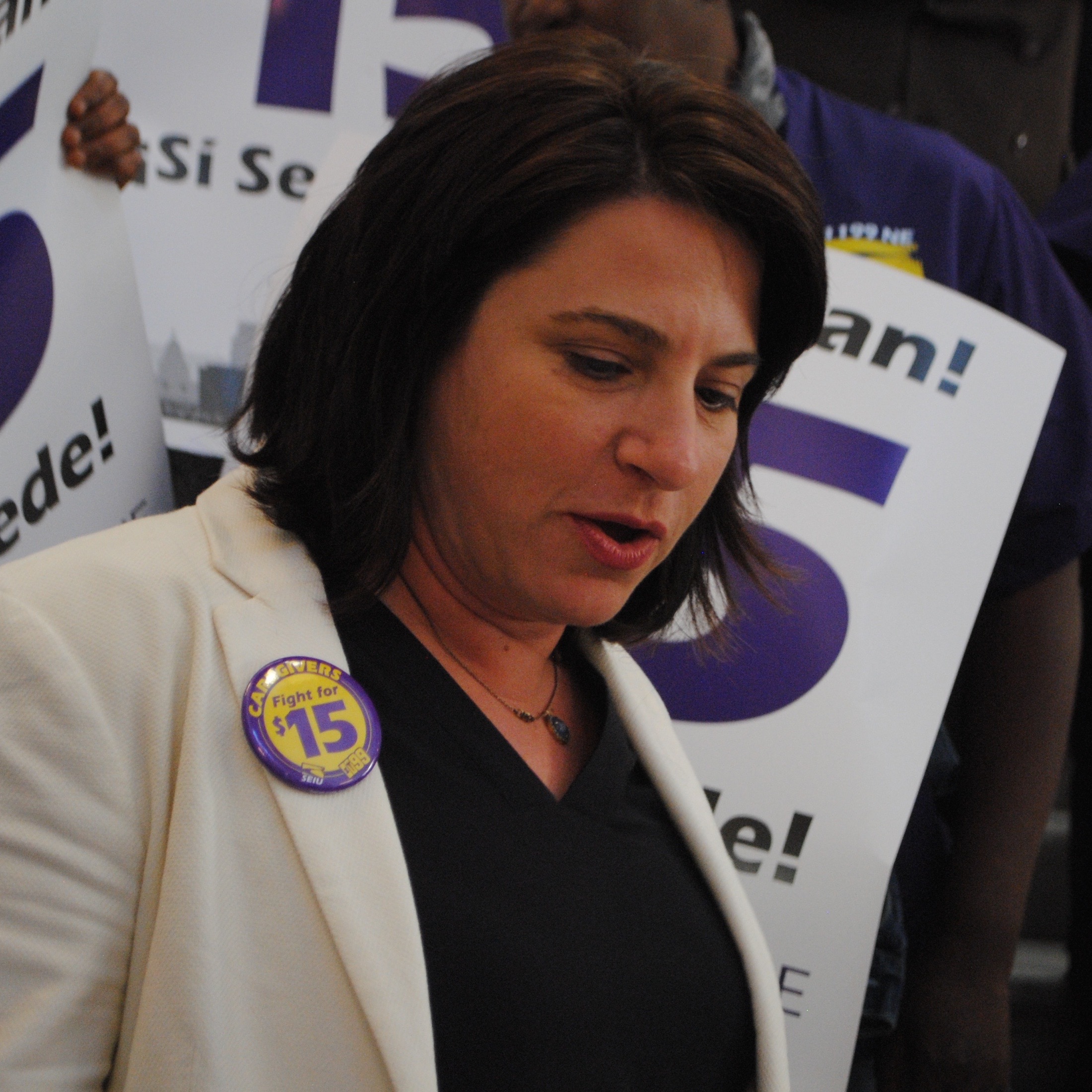
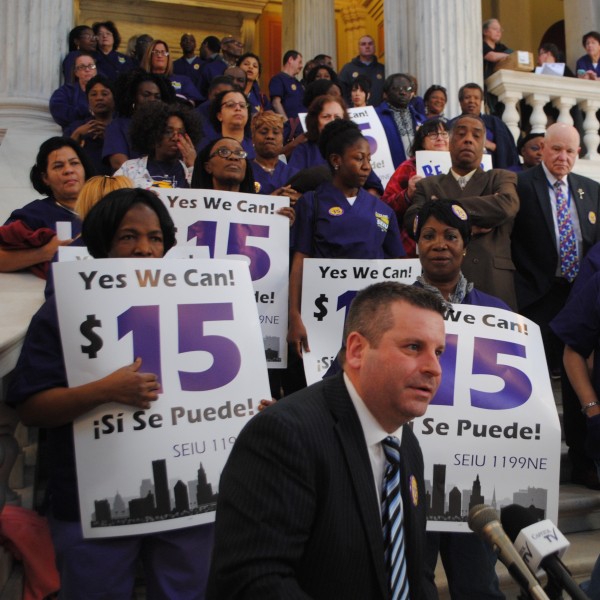
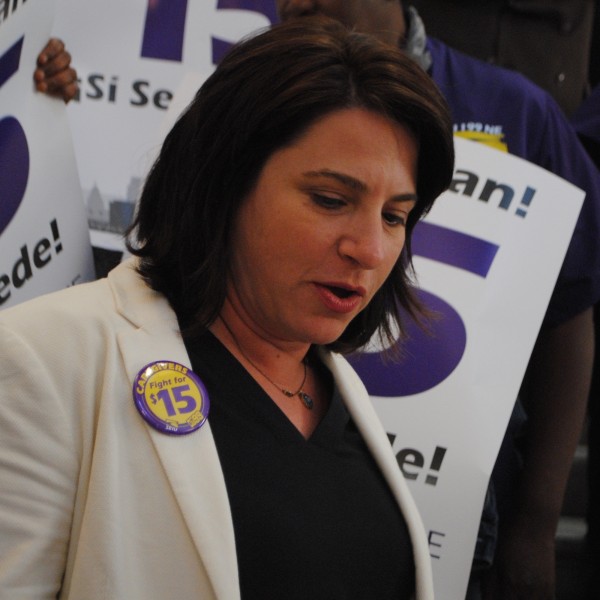
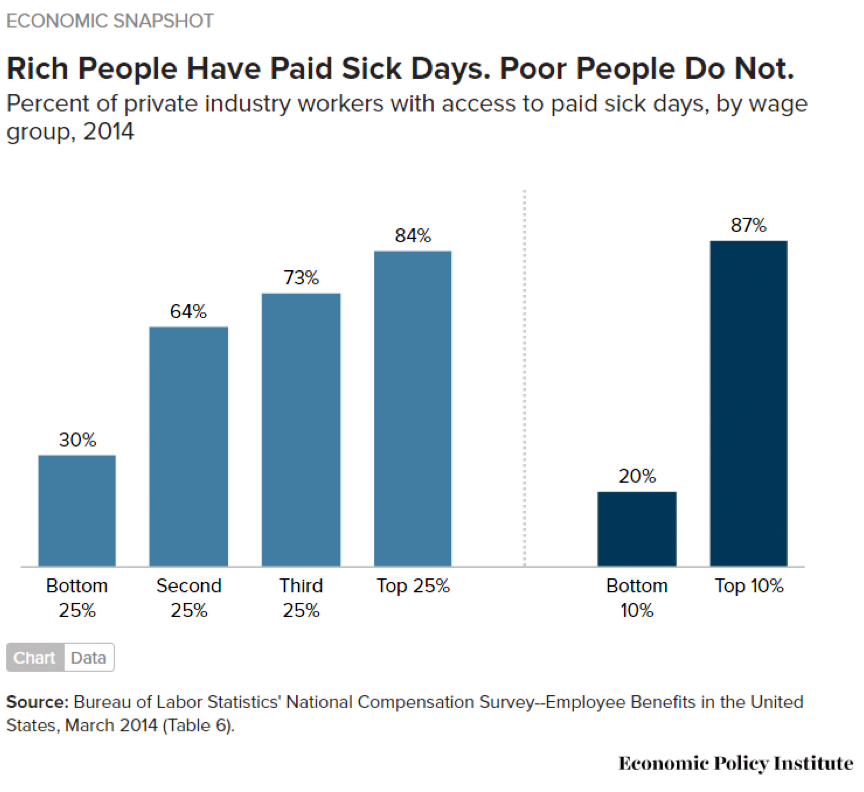
 One significant reason to pass paid sick leave legislation is that failing to do so further exacerbates disparities based on income. The Economic Policy Institute
One significant reason to pass paid sick leave legislation is that failing to do so further exacerbates disparities based on income. The Economic Policy Institute